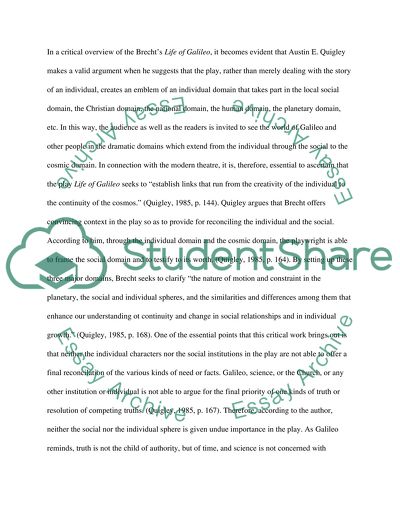Cite this document
(“Bertolt Brechts Life of Galileo: Social and individual concerns are Essay”, n.d.)
Bertolt Brechts Life of Galileo: Social and individual concerns are Essay. Retrieved from https://studentshare.org/literature/1466391-bertolt-brechts-life-of-galileo-social-and-individual-concerns-are-inextricable-in-modern-literary-texts
Bertolt Brechts Life of Galileo: Social and individual concerns are Essay. Retrieved from https://studentshare.org/literature/1466391-bertolt-brechts-life-of-galileo-social-and-individual-concerns-are-inextricable-in-modern-literary-texts
(Bertolt Brechts Life of Galileo: Social and Individual Concerns Are Essay)
Bertolt Brechts Life of Galileo: Social and Individual Concerns Are Essay. https://studentshare.org/literature/1466391-bertolt-brechts-life-of-galileo-social-and-individual-concerns-are-inextricable-in-modern-literary-texts.
Bertolt Brechts Life of Galileo: Social and Individual Concerns Are Essay. https://studentshare.org/literature/1466391-bertolt-brechts-life-of-galileo-social-and-individual-concerns-are-inextricable-in-modern-literary-texts.
“Bertolt Brechts Life of Galileo: Social and Individual Concerns Are Essay”, n.d. https://studentshare.org/literature/1466391-bertolt-brechts-life-of-galileo-social-and-individual-concerns-are-inextricable-in-modern-literary-texts.


